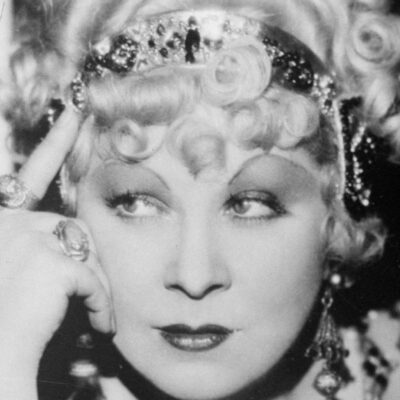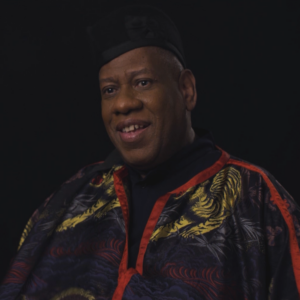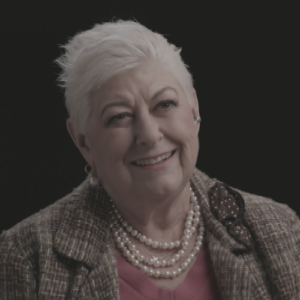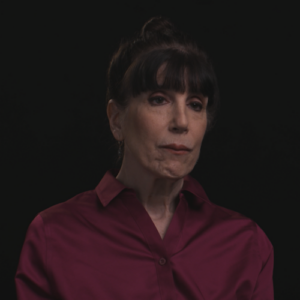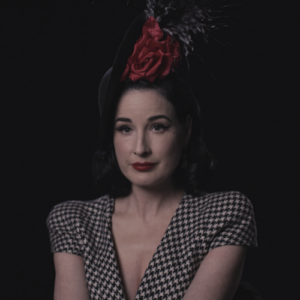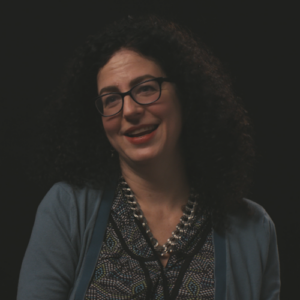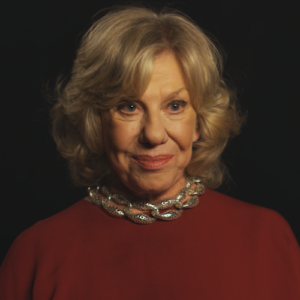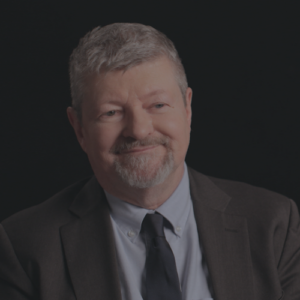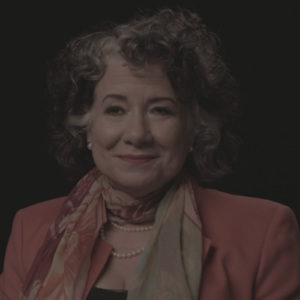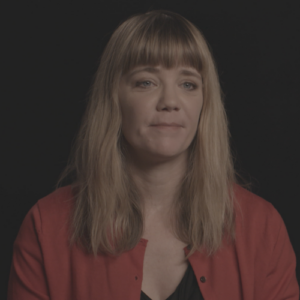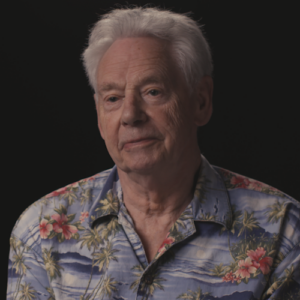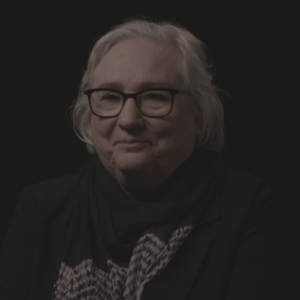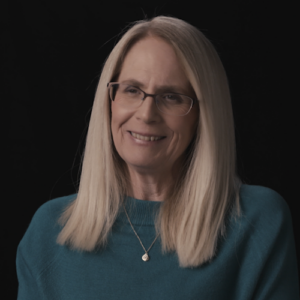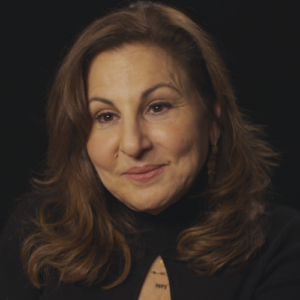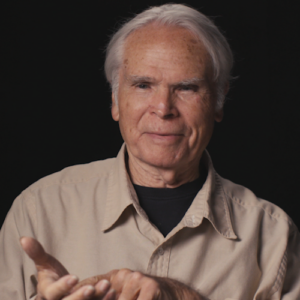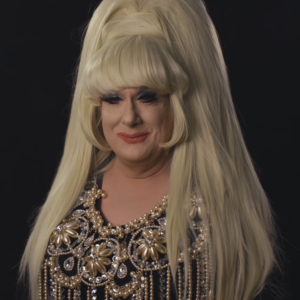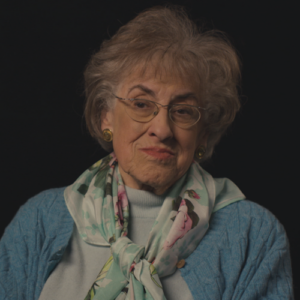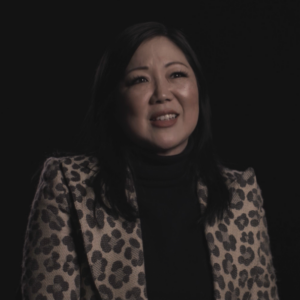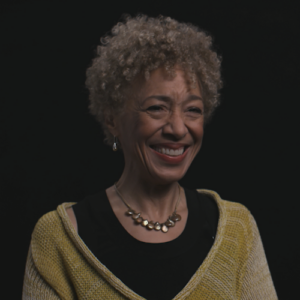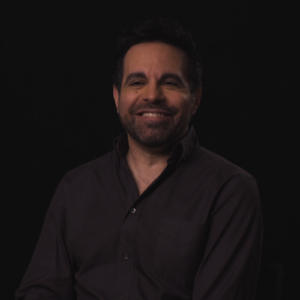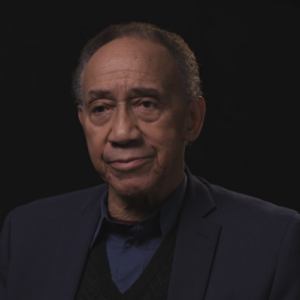Interviewer: Let’s start with how you how you first met her.
George Schlatter: Okay. I was I was producing the shows at Ciro’s and Mae West and opened in Las Vegas. And Herbert Hoover, the owner of Ciro’s, got the brilliant idea. We were going to bring Mae West to series. And then the adventure began.
Interviewer: And had you seen the Vegas show?
George Schlatter: Yeah.
Interviewer: What was it like?
George Schlatter: It was Mae West. Oh, I can say it was made with. She had a whole stage full of weightlifters and whatever. And one of the weightlifters was Mickey Hargitay. You never hear of them. It was Mr. America, and he was in it. He had the group of very interesting men.
Interviewer: And they’re all wearing little.
George Schlatter: Yes, they were all wearing little things. It was the only thing little they had on them. They were the these guys had muscles on top of muscles. And she looked at them and it was very interesting. They looked at her like intensely. The Mae West was not just a movie star. She was an event. And she had that stage full of men. It was it was an event. You somehow think that she perhaps was being naughty with half of them, you know?
Interviewer: So what was the show they were they carrying her around?
George Schlatter: Yeah. Yeah. And she she came out. She kind of she didn’t really sing. She kind of hummed and she kind of spoke a little bit. But she whatever she did, you were fascinated just watching her do it. She was tiny. You know, I expected when I met her to see a tall, slinky woman. She was a she was she was under five feet, I think, you know, And then she wore these big platform shoes.
Interviewer: And she so you just sort of try to set the scene for Vegas. This is 1962.
George Schlatter: 1962. Vegas was much different than it is now. There were only a few hotels in Las Vegas and Sinatra was a big event up there, but there was just a handful of performers, and they did two shows. And that was that was Vegas. Vegas had a line of girls and two shows. And they came out and they did the nightclub acts and it was much cleaner. Nobody said them or hell or anything. It was very clean. And then when Mae West came in, that opened the door for like The Littlest Saints singer and some of the other people that we brought to Vegas.
Interviewer: So who would be in the audience at home and who’s going?
George Schlatter: Well, people people flew in from Los Angeles on old DC three planes. Right? And the audience was either tourists because the Vegas was on the highway going across Nevada, and there were either tourists or fans. And Mae West brought a whole different kind of audience to Las Vegas.
Interviewer: Different home. How?
George Schlatter: Well, they were deeply appreciative. They were half of them were turned on. And she was a big movie star. And people kind of had a sense of all with Mae West.
Interviewer: Do you remember what she wore in the performances? I’m trying to get some sort of a picture of it.
George Schlatter: I don’t remember specifically, but whatever she wore, it was tight, it was slinky, and it went well down below her shoes because she wanted to look taller. And so it was usually pastel and and always tight and just enough so she could breathe in it. And she did some heavy breathing.
Interviewer: And the guys are oiled up the guys.
George Schlatter: Well, I didn’t know anything. I didn’t know that. Well, but they just they had lubrication on their body. They were oiled up and they were massive muscles piled on. And she looked at them like she had known each of them in a biblical sense. It was it wasn’t anything dirty, nothing you couldn’t do today. But there was just a sensuality about her presence and her delivery and her voice and her looks. She would know. And you just sat there staring at her.
Interviewer: So this is 62. So she would have been about 68. 69 years old. Yeah. Did she seem 68? 69 years? No.
George Schlatter: No. I mean, somehow I thought we would get to be 68 before she would. She she though she was ageless. She was tiny and she had a sensuality about her that was very disarming. And. And she played it. I mean, it was the whole game with me was she was was putting everybody on.
Interviewer: So that sort of sensuality is it’s something she was performing.
George Schlatter: It came through when she was having lunch. She had a sensuality about it. There was just she exuded. This kind of sensuality is the right word. The only word. And she, um, you know, she was she looked at a man. He became a it became property, you know, And I think. Didn’t she just walk along the street in the pair of the Paramount lot and saw this young guy who was a stagehand and she pulled him into the movie. And it was the was it Gregory Peck? You know, it was a was it was one of the ones that she found in the streets.
Interviewer: Cary Grant.
George Schlatter: Cary Grant. Cary Grant. I mean, you know, can you imagine Mae West looking at Cary Grant? We know now. But she just spotted him and said, you know, young man over here, she made him a star.
Interviewer: It’s amazing. You know, in those in those first couple of movies, he looks so much younger than her. He looks terrified.
George Schlatter: They were she could terrify a young man, you know, because, you know. No, no. None of us were too sure we could handle it. But Cary Grant, he could handle anything.
Interviewer: So and the audience there. So she’s received pretty enthusiastically when she’s in Vegas.
George Schlatter: Oh, yeah. Oh, yeah. And she worked. She worked other, you know, nightclubs and saloons and whatever. And then she came eventually. The way I met her is the Herman Hoover wanted me with four zeros and zeros. Was the club in the night on the Sunset Strip? That was kind of the top of the nightclub world. And so I went after Mae West, and I convinced her to play zeros with her musclemen.
Interviewer: And how did that happen? He went to her apartment?
George Schlatter: Well, yeah. Yeah, I talked to her and I said, we’d love for you to play services, but why don’t you come up and see me later? Okay? But there was a sensuality about everything. She’s either real or imagined. And, you know, she had an apartment on Oskaloosa, and it was like a penthouse, I think. And so I arranged an appointment to go meet Mae West. And I went into the room, and the room was all pastels and pink and white chiffon. And and so the person that greeted me said, Here, sit here. I sat there and she came in behind me and stood in front of this picture window with all white chiffon. And I turned around and I saw Mae West. She looked much taller than I ever imagined, but a lot of that with these lips. And she had just a presence that was disarming. And it was fun. She she was fun.
Interviewer: Does she do it? Does she do the walk in real life? Is that how she walks around the apartment.
George Schlatter: As she walked away? When I met her, she she didn’t walk. She slinked and she didn’t talk. She kind of purred and she didn’t laugh. She kind of just had a warmth that came up from some place inside her. So she was she was not a woman. She was not a star. She was an event. And everybody who met Mae West remembered when they met her. And I will never really forget a time I didn’t spend that much time with her, but enough to know that she was a very special lady.
Interviewer: So you ask her to be in the show and she said yes right away.
George Schlatter: You know, that was a problem. And she finally said she would do be in the show if I would be in her group. And I said, That’s not me. You know, I leave my shirt on. I don’t do it. She said she’d do the show if I would agree to be in one of her boys. And there was no other choice. Right. So I became part of her act. And fortunately, there were no stills that I know of. You know, the woman I was going to marry or about to marry, Joleen Brand, came in and saw this show and I looked down and she was sitting ringside and she was going, Oh my God, You know, I only did a few shows where I was not a permanent member of the Mae West Troupe.
Interviewer: Then. Did you wear.
George Schlatter: The. No, I didn’t know. I wore a regular kind of tuxedo, which I thought was a good idea, by the way. I didn’t want to put the rest of them to shame.
Interviewer: So. So what do you do in the show, then? If you’re if you’re not, you know.
George Schlatter: You kind of do patter and you do you walk back and forth with her and take her from one muscle man to the other. And as I said, Mickey Hargitay was one of her boys, and he was this special, special looking young man. And it was just it was a fun event, you know? And she was some of the things she said then you might even have trouble with today, you know, And the but but when she said it, it didn’t seem like it was dirty. It didn’t seem like it was well, it just seemed that it was warm and sensual and fun and sexy. Yes. But fun and happy and playful, you know. And she was all of those things.
Interviewer: Do you remember any of those things that she or was it just off the cuff stuff?
George Schlatter: Well, she had the saying, you know, about find them, feel them, feel. And I mean, that was kind of a philosophy which she repeated. And then she said the the famous line was, is that a flashlight in your pocket or are you just glad to see me? Well, today that would probably. Still be a bit of a problem. But when she said it, she said that she didn’t speak it. She kind of purred, you know, and and the audience went, Yeah, me.
Interviewer: So she was how was the audience at Zero? Sort of the same reception as she was getting in Vegas?
George Schlatter: Oh, yes. There was a much smaller room in the Vegas hotels, but she got the same reaction because she was she was a megastar. She was and she was an event. She was not just a star. I mean, Betty Grable was a star. And she did a wonderful act. And Betty Hutton was a wonderful act. And she was a comedian. And Kate Thompson and Dinah Shore, they were all they all worked Vegas. But when Mae West worked Vegas, it was somehow different. You didn’t know what to expect, but you knew it was going to be unusual, bizarre, sensual and fun.
Interviewer: She’s she’s been out of the public eye for a long time. Why do you think she was still such a big star memory?
George Schlatter: I mean, her movies, who had been on people, seen her movies, and she was Mae West. Mae West became a synonym for the lifejackets during the war. We called Mae West and everybody knew what it was. It was an inflatable, inflatable bit of apparel that would hold you up in deep water, the same as me.
Interviewer: Do you think she was playing the part or was that really who she was?
George Schlatter: Well, I don’t think you could just play that. But she was playing is the key word She was playing. And when she was in the room, that was where you looked because she was playing, she was playful. She was playing. And I think she was enjoying being Mae West as much as we were enjoying being with Mae West.
Interviewer: That makes sense. So what do you think the fact that she’s still performing that character in her eighties?
George Schlatter: I wish I was. I mean, the character. The character just happened. The character. It wasn’t what she said necessarily wasn’t. It was just a warmth that she exuded. And. And so you get caught up in it and you went along with whatever she had to say and you became part of her environment. She was not a performer like Dinah was. Betty Hutton was a star. Those people. She was a she was an event. That’s pretty much what it was. Not necessarily singing better than anybody or dancing better or doing jokes. She just happened and the audience got caught up in this Mae West aura.
Interviewer: But I guess what I’m wondering is when she’s you know, she’s in her eighties and she’s in this kind of, you know, lacy nightgown. And, you know, what’s jumping out at you isn’t the age, it’s the performance.
George Schlatter: Well, when you say she was in her eighties, she didn’t know it and I didn’t know it and the audience didn’t know it and didn’t care. She was mature, but she was still vibrant, sensual, funny person that just walked in the room and took control. So nobody really thought about age. Thought about my age, but not her.
Interviewer: Know. So the first time you meet her, you’re sitting in her apartment. What are you thinking?
George Schlatter: I’m thinking. I wonder how this is going to go. Because it was not just meeting anybody. This was meeting Mae West. And then she. She walked in behind me and stood in front of that window. When I met her, she walked in behind me and stood in front of this window with white chiffon. And she was like in a pink slither thing and totally made up and dressed. And it was, I think, maybe ten, 10:00 in the morning. And I turned around, as was Mae West, and took your breath away. When you see her today, when you see those pictures, those were not just staged. That was the woman she lived that night. Yeah, It’s like seeing. Yes. I mean, she was like Dolly Parton. I don’t care what time of the day or night. You see Dolly Parton, she’s totally made up and dressed and ready to perform. That was the way Mae West was. No matter what time of the day I saw night or whatever it was, Mae West, she played that role and she lived that role, and we all kind of lived it with her.
Interviewer: So she’s been called a female impersonator. What do you think?
George Schlatter: I want to meet who she was impersonating. Yes. If she was if she was called the female impersonator. I’m a jockey. I mean. No, no, she was not. I didn’t examine her that closely. But I can pretty much guarantee you from the people I knew who did this was not an impersonator.
Interviewer: So why do you think those rumors spread that she was a member?
George Schlatter: I don’t know why you would say that. I mean, only I don’t know why you would say Mae West was a man. But unless you’d say. The pyramids were little hills. The Rockies, Rockies or the mountains. The Rockies are just hills. I know Mae West. If she wasn’t a woman, then she’ll do until a woman shows up on his side. Mae West. Mae West was totally feminine at all times. And she wasn’t just a woman. And the idea that she might have been a man. I want to belong to that regiment. I mean, she was. She was very special. You run when you run some clips of her, run them, and then and then stop it and analyze it, because she she walked in the room and took control. The room warmed up when she came in through the doors and she had this white chiffon curtain behind her and kind of wood going with the wind. And she was, as I recall, in a long pink kind of a very tight gown. And and this was 10:00 in the morning. And she said hello in the room. Oh, God, it’s Mae West. Very few people have that kind of charisma.
Interviewer: Who does? Who do you think is sort of the modern Is there a modern day equivalent to her?
George Schlatter: Tim Conway. No, I don’t know what the modern day equivalent to MU.
Interviewer: That you would consider sort of her descendant.
George Schlatter: No. Mae West was an original and remains an original. Women and directors and producers have tried to capture another Mae West, though it can’t be another Mae West. She was the first and she remains Mae West. It was like people would use Mae West if it was like Mae West. Everybody would say it was like Mae West. Well, there was nothing like Mae West. There were other people who who did bawdy humor. There were other people who said naughty things, but nobody kind of included the audience in her experience.
Interviewer: That’s one of the key things you think made her.
George Schlatter: A part of. Yeah, I think that was part of it. I think also a big part of it was Mae West was enjoying playing Mae West, and she enjoyed the role. She lived the role, and she realized that she was seducing an entire audience. And everybody in the audience remembered the experience of seeing Mae West. I did.
Interviewer: So I don’t think there was that much space between, like her private life and her public.
George Schlatter: Well, I unfortunately was never really part of her private life. I would have been, but it just didn’t happen. But she you felt that Mae West had great secrets, you know, and she she drew you in her persona, just drew you in and did what? She walking across the lot at Paramount and sees Cary Grant and puts him in her next picture. Mae West had that kind of magnetism and that kind of vision. Mae West had that kind of vision about herself. She also had that kind of vision about others, and she was enjoying being Mae West.
Interviewer: One thing I think about is that, you know, she was a vaudevillian and you craft this. You had this act in the perform it, you know, forever like you won. You know, you you you sort of have one bit that you make your own. Oh, no, no.
George Schlatter: She she had much more than that. See, because Mae West not only acted, but she reacted. And that’s what made her even more compelling, you know, because whatever you said, she had something to say about it and do it. And so the audience became part of her group.
Interviewer: Her humor, was it? How much of it was directed to men or, you know.
George Schlatter: It was all directed to men. And I know, I know. The guy was it was shake hands with a woman. I don’t think she had any interest at all in women. She did, however, exhibit great interest in men. And and I’m sure a number of men enjoyed the experience. At least she did. I’m I would I was never too sure how far it all went. But if I listened to her, it always went all the way. But I didn’t I didn’t have I have no accurate information about her private life other than the fact I enjoyed standing outside the door.
Interviewer: So she. You’re saying she didn’t seem aware of her age? Like you said, she didn’t know it. What did you mean by that?
George Schlatter: Well, I think I think I agreed with May. She was timeless. She used to see the pictures of her that time. The complexion was in her eyes were bright. She either had a lot of dental work done or it was just the whole persona, her smile, her laugh, and. And the fact that when they looked at a man, she was analyzing him. She was she was going to figuring out, do I want to go there or not? So you sensed a sensuality about her and a sexiness that was not overt, sexy. It was just magnetism. And that was it was my little buddy Mae.
Interviewer: Did you get the feeling she was kind of checking you out when you met her?
George Schlatter: Oh, she was checking out everybody. Oh, yeah. Oh, yeah. She’d look at you and you felt, What are you looking at? And you knew what she was looking at. But she. She made me. She made the same as every other man she met or was with feel important. And they’d walk out of the room saying, I met Mae West. She was, she was a very special woman.
Interviewer: So what’s different about her in 1962 than, say, 1932 when she does her first movie?
George Schlatter: I think she had perfected the art of being Mae West by the time she was 62, you know, because that grew and developed and added to it over a period of years. So by the time she met Cary Grant, there was no there was no way to control your emotions with Mrs. West.
Interviewer: Why did she want you to be in her show so badly?
George Schlatter: I don’t know why she wanted me in the show. I was not Mickey Hargitay. I was not a muscle man. I didn’t look good in the thong, but I think I was very young, and. And I enjoyed being with her. And I think she thought that on stage we could capture that relationship. I know when my wife, Joleen, saw me, she said, Find another line of work, which I did.
Interviewer: And there’s really no images of it.
George Schlatter: No, no. I think I think Johnny probably destroyed most the evidence of me having been on stage with Mae West.
Interviewer: Did you do that with any other performers? That ever come up again?
George Schlatter: No. Judy Garland A little bit. No, that’s not what I did. You know, I was. But Mae West, you couldn’t just say, No, I’m not going to do that. She she informed you of what you were going to do.
Interviewer: So how many performances did she do at Ciro’s?
George Schlatter: About I think she was just there for about a week or maybe ten days or something. And I think I got in the show maybe the fifth night or something. It took a little while for me to be convinced to go my anonymity.
Interviewer: So was she what you expected?
George Schlatter: I didn’t know what I expected. I expected to see Mae West, and I wasn’t even too sure what that was because you’d seen some films and read about her. But there was no way to prepare yourself for the entrance of Mae West. You just went, Oh, my God, it’s Mae West. She was tiny, and I expected a much taller woman than that. But she was just a little I think she was only five feet tall or something, maybe less. But she wore these big platform shoes and you just kind of. Kind of took your breath away. That is Mae West. I don’t know who could walk in the room now that would have that kind of impact. We have stars and we have the Internet. We have whenever I don’t know who could walk in the room now that would command that kind of awe. Maybe somebody. Maybe. Maybe Trump.
Interviewer: That’s what we haven’t gotten before. I just want to make sure we have a clean version of it. Can you tell me again what her motto was?
George Schlatter: Well, she had a number of models. She had a number of sayings that live forever, like, come up and see me sometime. Is that a flashlight in your pocket or are you really glad to see me? And she had find them, feed them, feel them. And that was kind of. And you hear this woman, She looked. She looked absolutely enchanting. Right. And then you hear some of that stuff come out of her. And it didn’t sound dirty. It didn’t sound obscene. It just sounded like Mae West. She could say things that nobody else could say and did.
Interviewer: Julie, we were talking about the Red Skelton thing and he said that beat off. Oh, my gosh. Really? You think that’s what she meant?
George Schlatter: I beg pardon.
Interviewer: It just mean the Red Skelton thing about a smart girl never beats off any man. Is that what beating off meant then?
George Schlatter: It still does. I mean, so far as I know. I mean, I’m not an I’m not an expert on the art form, but I. I believe the beating off is the same now as it was at the turn of the century.
Interviewer: But what year was that? 1960. I’m just surprised they would put that on television.
George Schlatter: Well, they didn’t know what they were doing on television then. Not until laughing. And did we have really resident eagles staring at everything we said. And did you know? And but that’s what it meant then. That’s what it means now. And by the way, if Mae West came on and said it today. It would still go by maybe once. But we’ve now we’ve now invented the use for the F word. Right. And it’s in everything we hear and whatever. And she never said that. And like that. She just it kind of became part of her part of her speech, part of her vocabulary. So the thing about how did she say beat off? What was it.
Interviewer: The guy says, you know, we want to hear more about the men who are off beat. And she says, Well, smart girl never beats up any man.
George Schlatter: I don’t know how to add anything to that.
Interviewer: Well, the questioner doesn’t even react well.
George Schlatter: Because he was in shock. You know, you don’t expect to sit in front of a megastar and ever do a masturbation reference and react. The only way you can react is. I see. Well, let’s go back to church. I mean, it was like the it was Mae West. And what she would say wasn’t dirty. It was just Mae. It was just Mae commenting. And those little sayings of her is lived on forever.
Interviewer: Hmm. You know, she did this radio performance on Charlie McCarthy in the forties, and. And she performed this Adam and Eve skit. Mm hmm. Banned from the airwaves for a decade. And somebody in our team went to the National Archives last week and was looking through these these letters that people wrote to the FCC saying, you know, this woman is immoral. She’s destroying the moral fabric of our country. You know, my Christian child was listening.
George Schlatter: Yeah, yeah, yeah.
Interviewer: Was that the way.
George Schlatter: All of that may be true. And that’s what made it So we were having so much fun With what? A Christian child. I’d like to see what was into a Christian child. It was destroyed. We now know that it’s not even safe for them to go to church. We found that out today. So how was Mae West doing? More damage than some of those priests. Sorry. You have to have something to cut out, don’t you think? I mean, you’ve got Donald Trump as president and your word was masturbation joke. You know, Donald Trump is a masturbation joke. And we didn’t I mean, she not only said it, we elected it. So Mae West now would qualify as a nun.
Interviewer: Well, okay. What is her legacy?
George Schlatter: Her legacy? Have a good time. That sex is is not an aerobics exercise. It’s a it’s a pastime. It’s a way of life. It’s a part of what we enjoy about being humans and being here on Earth. And she made the living experience warm and wonderful and fun. It wasn’t just sex, it was fun. And I didn’t have as much fun as some of those guys. But she was fun. It was just fun to be with me. Was even in a in a on stage play. She was fun to be with. From what I hear.
Interviewer: I do wonder about that. Like, what was she actually like in bed?
George Schlatter: I would imagine that the image was so strong that you didn’t need much else because you’d wake up and say, I’m in bed with Mae West. That’s all you needed. I mean, that that itself could get you through the experience. I didn’t have that experience, but that’s what I heard. And she was she wasn’t sexy. It was it wasn’t just sexy. It was sensual. It was having sex with Mae West. I would think a while I’d never got that far because I was, you know, in the chorus and I was married to Jolene, who frowned on those things. But Mae West, a sexual experience with Mae West, could happen during her act. I mean, you just look at it, you say, Oh, that feels good. You you looking through all her films and so forth, right? Yeah. Mae West was putting us all on. I mean, it was like she was having fun teasing us and provoking us, and. And we enjoyed it, too.
Interviewer: You know, She said, All my life I’ve been a put on. I’ve always wondered what she meant by that.
George Schlatter: I think you know what it was? It was a she. The audience took her more seriously than she did. She was just having a good time and putting us all on. And when she said, Come up and see me sometime, she didn’t mean come up to the apartment. She just meant figuratively, Come up and see me sometime. Is it okay, Mae? I’ll be right over. Invitation and no one could turn down.
Interviewer: Is there anything that you that I even asked you that you want to tell me?
George Schlatter: I think I probably have told you too much. You know, just be nice to her. She was a nice lady. I don’t know. I don’t know whether she was a nice lady or not, but she was an event. She was a very special person. And I enjoyed being with her, you know, And and I wish she was still with us. Be nice to her.
Interviewer: Well, you know, it’s it’s really helpful because like I told you before, all you know, her friends from the seventies who we sat down with, they were all just saying she was so sweet. She fed you, you know.
George Schlatter: Well, that’s where the line came from to find a villain and feed them. And, you know, but she I’m not I don’t know what. She was sweet. I don’t know. Maybe it depended. Everybody had different relationships with me. I’m just glad that I was with her and had a chance to experience the moment of being with Mae West.
Interviewer: On Did you ever get a sense that she was trying to do something subversive, like she was trying to make a statement with her act, or was it just having fun?
George Schlatter: Well, subversive is a word we’ve only recently learned to use with. We have a great teacher, but she was having fun. That’s what Mae West was. Mae West was having fun. And as a result, we had fun. And and that has survived. You’re talking about a woman now that was born when.
Interviewer: 1893.
George Schlatter: 1893, and you’re still talking about her today. So she was something very special.
Interviewer: Yeah, well, it does seem like sometimes her jokes, I mean, they’re very pointed. It’s like she’s trying to get a point across, you know, talking about equality for women, things like that. It does seem like she’s trying to make a point of, you know, I’m capable of as much as you are, if not more. But she’s always putting the guys in her movies in their place.
George Schlatter: Yeah, that’s good. Which we now know how to do it. Now women are now. You know, she knew she was putting men in their place and a lot of them she put in her place. She is. She was You can’t overlook the fact this was an event. This was a very special event. We’ve had other sexy, horny, outrageous, provocative women. But Mae West, probably when you list them, it’s right there on top and say, well, it was like Mae West. You can describe women today, but she was a little like Mae West. And you know what you were describing. So I’m just pleased that I was part of her environment and I’m pleased that you asked me, even though this may wind up on the cutting room floor, please.

